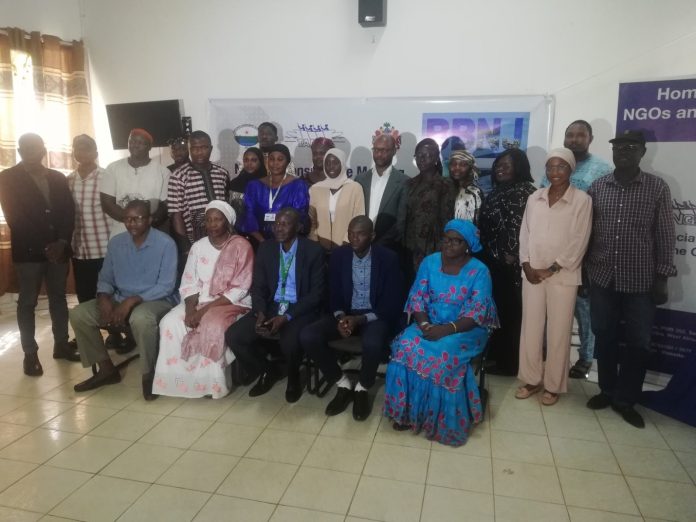By Madiba Singhateh
In a significant move towards ocean governance and environmental sustainability, the National Environment Agency (NEA) on Wednesday, 23rd July 2025, convened a two-day national consultative meeting on the Biodiversity Beyond National Jurisdiction (BBNJ) Treaty. The event, held at the TANGO Conference Hall in Fajara, aimed to raise awareness and engage key stakeholders on the ratification and future implementation of the BBNJ Agreement in The Gambia.
The BBNJ Treaty, formally known as the “Agreement under the United Nations Convention on the Law of the Sea on the Conservation and Sustainable Use of Marine Biological Diversity of Areas Beyond National Jurisdiction” is a landmark international agreement designed to protect marine biodiversity in high seas areas that lie outside national boundaries.
Delivering opening remarks, Executive Director of NEA Dawda Badjie hailed The Gambia’s participation in global ocean sustainability efforts, noting that the country signed the BBNJ Treaty on 20th September 2023 at the United Nations Headquarters in New York.
“Similarly, Cabinet has given its approval for ratification during its meeting held on 10th July 2025,” Dr. Badjie announced, adding that this bold step reaffirms the nation’s commitment to environmental stewardship, intergenerational equity, and multilateral cooperation.
Dr. Badjie emphasized that while the treaty covers areas beyond national jurisdiction, its relevance to The Gambia is immense, especially given the country’s reliance on fisheries, coastal tourism, and marine-based livelihoods. “The BBNJ Treaty also opens up critical opportunities for capacity building, marine technology transfer, and financial and technical support for developing countries—benefits that align with our national priorities,” he said.
He described the meeting as a key milestone in fostering inter-sectoral dialogue, building stakeholder consensus, and laying the groundwork for effective ratification, domestication, and eventual implementation of the treaty.
“The ocean is a common heritage of humanity, and your presence here today reflects a collective recognition of its importance, as well as the need for inclusive and informed decision-making as The Gambia defines its role in this global process,” he said.
Speaking at the event, Ndey Sireng Bakurin, Director of TANGO (The Association of Non-Governmental Organizations in The Gambia), highlighted the crucial role of civil society in the BBNJ process. She underscored the need for the treaty’s implementation in The Gambia to be inclusive and rooted in community participation.
“For us in civil society, this is a vital opportunity to ensure that the BBNJ process in The Gambia is inclusive, transparent, and participatory. The voices of local communities, youth, women, and marginalized groups must be central in shaping how The Gambia engages with this treaty moving forward,” she emphasized.
Madam Bakurin applauded the leadership of NEA and the Ministry of Environment for championing the national process and expressed hope that the meeting would lay the foundation for a nationally owned, well-coordinated roadmap for implementation.
The forum brought together representatives from government institutions, civil society organizations, academia, and development partners, creating a space for meaningful dialogue on how The Gambia can align its national development goals with global ocean conservation frameworks.
As the global community moves toward safeguarding marine biodiversity beyond borders, The Gambia’s steps toward ratifying and implementing the BBNJ Treaty mark a significant leap in its environmental diplomacy and commitment to sustainable development.


















